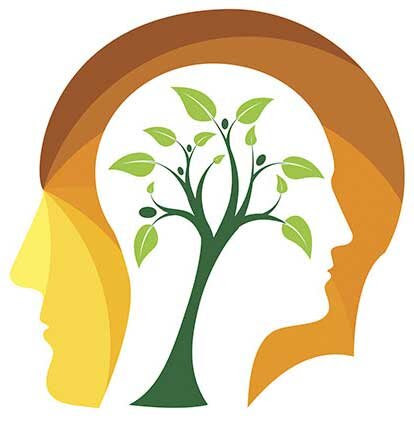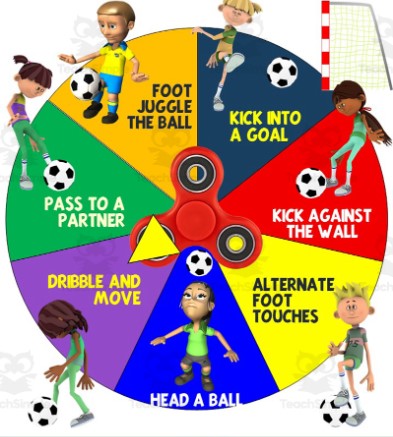بداقی، آرزو و شیخالاسلامی، راضیه. (1399). اثربخشی آموزش مهارتهای خودتعیینگری بر خود نظم دهی تحصیلی و سرسختی روانشناختی دانشآموزان. پژوهشهای برنامه درسی، 10(1)، 300-321.
بهرامی، جمیله. (1397). بررسی تأثیر داستان های تخیلی و واقعی بر سلامت روان دانش آموزان پایه پنجم مدارس ابتدایی شهر سراوان در سال تحصیلی 96-97. پایاننامه کارشناسی ارشد، دانشگاه پیام نور واحد تفت.
بهرامی، محمود. (1393). پیش بینی الگوهای ارتباطی زوج ها توسط سلامت معنوی و بهزیستی روانشناختی در معلمان زن مقطع ابتدایی شهر کرج. پایاننامه کارشناسی ارشد، دانشگاه خوارزمی.
توانای ننه کران، سعیده و عینی، ساناز. (1403). مقایسه بهزیستی روانشناختی، تنظیم شناختی-هیجانی و سیستم مغزی-رفتاری دانش آموزان دختر و پسر متوسطه اول. مجله علوم روانشناختی، 23(135)، 55-69.
حیدری مشهور، فاطمه؛ حسینی، سعیده سادات؛ افشاری نیا، کریم و عارفی، مختار. (1402). طراحی الگوی یکپارچه عوامل زمینه ساز بهزیستی روانشناختی در کودکان به روش دلفی. سبک زندگی اسلامی با محوریت سلامت، 7(1)، 216-227.
شاکری حسینآباد، محدثه. (1402). بررسی نقش میانجی خود تعیینگری در ارتباط بین سبکهای دلبستگی با بهزیستی روانشناختی دانشجویان. پایاننامه کارشناسی ارشد مشاوره خانواده، دانشگاه اردکان.
شریفی علون آبادی، محسن؛ عارفی، مژگان و آقایی، اصغر. (1401). مقایسه اثربخشی آموزش گروهی سرزندگی تحصیلی، مثبتنگر و چشمانداز زمان بر اضطراب تحصیلی و فرسودگی تحصیلی دانشآموزان پسر پایه نهم. راهبردهای شناختی در یادگیری، 10(19)، 167-189.
نوروزی، قاسم؛ میرزایی، حمزه و شیرزادی، محمد مهدی. (1400). اثربخشی آموزش توانش های خودتعیینگری بر بهزیستی روانشناختی و تاب آوری مادران کودکان با اختلال سندروم داون. مجله علوم روانشناختی، 20(105)، 1553-1568.
همتی، محمد؛ تیزدست، طاهر و جدیدی، محسن. (1404). اثربخشی بسته آموزش تلفیقی مبتنی بر درمان چشم انداز زمان و درمان مثبت نگر بر کیفیت زندگی و بهزیستی روانشناختی بیماران افسرده. مجله علوم روانشناختی، 24(145)، 97-118.
Biswas-Diener, R., Diener, E., & Tamir, M. (2004). The psychology of subjective well-being. Daedalus, 133(2), 18-25.
Brandão, T., Matias, M., Ferreira, T., Vieira, J., Schulz, M. S., & Matos, P. M. (2020). Attachment, emotion regulation, and well‐being in couples: Intrapersonal and interpersonal associations. Journal of personality, 88(4), 748-761.
Burkett-McKee, S., Knight, B. A., & Vanderburg, M. A. (2021). Psychological well-being of students with high abilities and their school’s ecology: Is there a relationship?. Roeper review, 43(3), 197-211.
Cha, K. H. (2003). Subjective well-being among college students. Social indicators research, 62, 455-477.
Deci, E. L., & Ryan, R. M. (2008). Self-determination theory: A macrotheory of human motivation, development, and health. Canadian psychology/Psychologie canadienne, 49(3), 182.
Diener, E., & Diener, M. (1995). Cross-cultural correlates of life satisfaction and self-esteem. Journal of personality and social psychology, 68(4), 653.
Diener, E., Oishi, S., & Lucas, R. E. (2003). Personality, culture, and subjective well-being: Emotional and cognitive evaluations of life. Annual review of psychology, 54(1), 403-425.
Diener, E., Suh, E. M., Lucas, R. E., & Smith, H. L. (1999). Subjective well-being: Three decades of progress. Psychological bulletin, 125(2), 276.
Giovagnoli, A. R., & Smith, M. L. (2019). Investigating the social cognition phenotypes in children, adolescents, and adults with epilepsy. Epilepsy & Behavior, 100, 106438.
Gunnell, K. E., Crocker, P. R., Wilson, P. M., Mack, D. E., & Zumbo, B. D. (2013). Psychological need satisfaction and thwarting: A test of basic psychological needs theory in physical activity contexts. Psychology of sport and exercise, 14(5), 599-607.
Keyes, C. L. (2007). Promoting and protecting mental health as flourishing: a complementary strategy for improving national mental health. American psychologist, 62(2), 95.
Levine, G. N., Cohen, B. E., Commodore-Mensah, Y., Fleury, J., Huffman, J. C., Khalid, U., ... & American Heart Association Council on Clinical Cardiology; Council on Arteriosclerosis, Thrombosis and Vascular Biology; Council on Cardiovascular and Stroke Nursing; and Council on Lifestyle and Cardiometabolic Health. (2021). Psychological health, well-being, and the mind-heart-body connection: a scientific statement from the American Heart Association. Circulation, 143(10), e763-e783.
Lucas, R. E., & Fujita, F. (2000). Factors influencing the relation between extraversion and pleasant affect. Journal of personality and social psychology, 79(6), 1039.
Lucas, R. E., Diener, E., & Suh, E. (1996). Discriminant validity of well-being measures. Journal of personality and social psychology, 71(3), 616.
Negovan, V. (2010). Dimensions of students’ psychosocial well-being and their measurement: Validation of a students’ Psychosocial Well Being Inventory. Europe’s Journal of Psychology, 6(2), 85-104.
Pailler, S., & Tsaneva, M. (2018). The effects of climate variability on psychological well-being in India. World Development, 106, 15-26.
Pinquart, M., & Sörensen, S. (2001). Gender differences in self-concept and psychological well-being in old age: A meta-analysis. The Journals of Gerontology Series B: Psychological sciences and social sciences, 56(4), P195-P213.
Roothman, B., Kirsten, D. K., & Wissing, M. P. (2003). Gender differences in aspects of psychological well-being. South African journal of psychology, 33(4), 212-218.
Rusting, C. L. (1998). Personality, mood, and cognitive processing of emotional information: three conceptual frameworks. Psychological bulletin, 124(2), 165.
Ryff, C. D. (1989). Happiness is everything, or is it? Explorations on the meaning of psychological well-being. Journal of personality and social psychology, 57(6), 1069.
Ryff, C. D., & Singer, B. H. (2008). Know thyself and become what you are: A eudaimonic approach to psychological well-being. Journal of happiness studies, 9, 13-39.
Sagone, E., Commodari, E., Indiana, M. L., & La Rosa, V. L. (2023). Exploring the association between attachment style, psychological well-being, and relationship status in young adults and adults—A cross-sectional study. European journal of investigation in health, psychology and education, 13(3), 525-539.
Tsanusis, J., Nikolaou, I., Serdoris, N., & Judge, T. A. (2007). Do the care-self evaluations modernate the relationship between subjective well-being and physical and psychological health? Journal of Personality and Individual Difference, 42, 1441-1452.

















